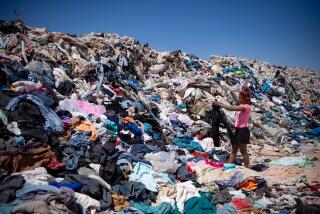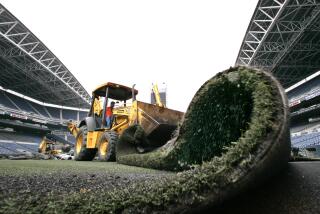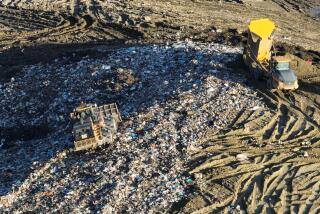Opinion: Hey, you! Yeah, you. Throw away your cigarette butts.
I have these cool neighbors. I know they are cool because they have regular get-togethers with other cool people that spill out onto the sidewalk so that passersby must dodge packs of young, arty types sipping wine and smoking American Spirits or whatever cigarette is coolest these days.
Here’s what’s not cool, however. Afterward, the sidewalk in front of their place is littered with crushed cigarette butts. Eventually, these stinky pellets of plastic will make their ways into the gutters and from there could end up in the river or in the ocean or on the beach.
I’m not picking on my neighbors, who are otherwise, as far as I can tell, decent people. I only tell this story to illustrate something that I find curious: That is, the many people who would never even think about tossing an empty Dasani water bottle out the window but think nothing of casually flicking a cigarette butt to the curb.
I’ll admit that I have even done so myself on occasion -- though not for a very long time and certainly not since realizing butts are comprised of fibers made, not of cotton or something similar, but from a natural plastic called cellulose acetate. That means they have an extra long life as litter. As a bonus, cigarette butt filters adrift on the sea can leach out the toxins used in the filter -- and the tobacco-production process.
Now that we’re so close to turning back the tide of single-use disposable plastic bags (please vote yes on Proposition 67 on Nov. 8), it’s time for the state to take a hard look the other items on the “most littered” list. At the very top, even before polystyrene foam and plastic water bottles, are cigarette butts. Some estimate that as many as 4.5 trillion butts are littered every year worldwide.
It’s hard to say how many end up in the oceans, but environmentalists say used cigarette butts are the single biggest source of marine litter. It’s the No. 1 trash item that Heal the Bay says is collected during the organization’s regular cleanups on Los Angeles County beaches. In hard numbers, that’s 574,957 butts plucked from county beaches since 1999. Yuck.
Some of the butts washed up on shore and others were left by beachgoers, according to Alys Arenas, beach programs manager for Heal the Bay. She said you can tell by the condition of the butt. Smoking is illegal on L.A. County beaches, but the results from the cleanups show people still do.
Too bad that the authors of Proposition 56, the $2-a-pack tobacco tax on the Nov. 8 ballot, didn’t add butt cleanup or butt recycling (yes, it’s a thing) to the list of things funded by the $1 billion or so a year revenue the tax is expected to bring in. However, if the tax succeeds in reducing cigarette use as expected, it should have a positive effect on butt litter. Fewer butts smoked means fewer butts flicked means fewer butts to clean up. That’s nice, of course, but it won’t end smoking anytime soon, which means there will still be plenty of butt litter.
Should it pass (and it should), the Prop. 56 money could be used on tobacco public education campaigns that include anti-butt-littering messages. I suggest a campaign targeting people like my neighbors and their friends who I assume simply don’t realize their discarded little butts are part of a massive problem.
Follow me @marielgarzaLAT
More to Read
A cure for the common opinion
Get thought-provoking perspectives with our weekly newsletter.
You may occasionally receive promotional content from the Los Angeles Times.











